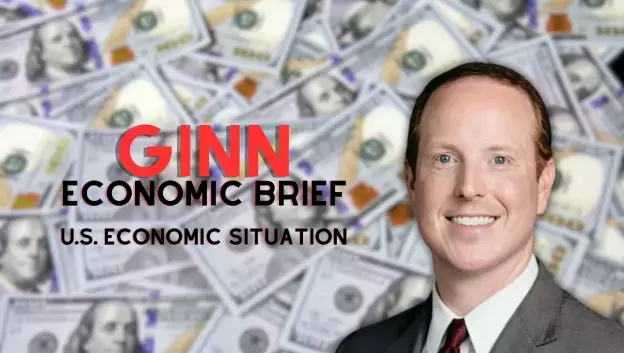|
Originally published at Texans for Fiscal Responsibility.
Navigating Economic Challenges: A Call for Pro-Growth Policies in America As we navigate the complexities of the U.S. economy, the recent data from March 2024 underscores a pivotal truth: we must return to free-market principles that foster abundant prosperity. Amidst current economic fluctuations, it’s crucial that American policy strongly pivots towards nurturing a market-driven economy. With its potential for innovation and efficiency, this approach challenges the status quo of governmental overreach and champions policies that propel, rather than impede, prosperity. This is a beacon of hope for a brighter economic future. Labor Market Dynamics: A Complex Outlook The labor market presents a complex picture. The latest data from March 2024 reveals an increase of 303,000 net nonfarm jobs, a significant portion of which 71,000 were in the government sector. This disproportionate job creation in the government sector, particularly in healthcare and education, is a cause for concern as it hampers productive private-sector activity, thereby impeding economic growth. Adding to the complexity of the labor market, household employment has seen a decline in four of the last six months, resulting in a net decrease of 84,000 jobs over that period. Despite the low unemployment rate of about 3.5%, the labor force participation rate remains subdued at 62.7%. This is a clear indication that many individuals are still not part of the labor force, artificially keeping the unemployment rate low and masking deeper economic issues. Moreover, part-time employment increased by 600,000 last month while full-time employment declined by 100,000, continuing an ongoing trend. These labor market data signal weaknesses, even as the headlines claim they are strong. Economic Growth and Inflationary Pressures Real GDP growth for the first quarter of 2024 was well below expectations at just a 1.6% annualized growth rate. When excluding government expenditures, the real private sector growth was a mere 1.4%, revealing the fragility of an economy buoyed by flawed government actions. This tepid growth underscores the limited effectiveness of fiscal “stimulus” absent of genuine market-driven expansions. Inflation continues as a significant concern, with the Consumer Price Index (CPI) for March 2024 rising by 3.5% year-over-year. This increase, alongside real average hourly earnings declining by about 4% since January 2021, exacerbates the economic pressures on American households. This situation advances the urgency for pro-growth policies to support sustainable economic growth. Charting a Pro-Growth Path for America The persistent high inflation suggests that this issue will likely endure longer than many anticipate. The Federal Reserve’s slow pace in reducing its bloated balance sheet implies that interest rates will remain elevated for an extended period, contributing to slower growth and stagflation until the bubble bursts and the recession hits. To effectively address these challenges, it is essential to advocate for reduced government spending, fewer regulations, and lower taxes. Implementing stringent monetary guidelines and adopting fiscal policies that align spending with economic benchmarks, such as population growth and inflation, would significantly stabilize and potentially reduce the national debt burden. The U.S. needs a fiscal rule like the Responsible American Budget (RAB) to control this fiscal and monetary crisis. This was recently released as part of Americans for Tax Reform’s Sustainable Budget Project and the Republican Study Committee’s Budget, highlighting this approach’s federal, state, and local benefits. If Congress had followed this approach from 2004 to 2023, instead of a $20.2 trillion national debt increase, it could have increased by just $700 billion for a $19.5 trillion improvement for taxpayers. To top this off, the Federal Reserve should follow a monetary rule so that the costly discretion stops creating booms and busts. Conclusion The current economic situation demands a firm shift towards policies that remove government intervention and support more economic growth. These strategies represent policy imperatives and moral obligations, unlocking the potential of the American economy and ensuring a prosperous future. Aligning policies with economic realities is crucial for fostering sustainable growth and prosperity, creating an environment where businesses can thrive, and individuals find more avenues out of poverty. By reducing the role of government and giving more space to the entrepreneurial spirit, we can ensure that our economy not only grows but does so in a way that benefits the broadest number of people. Let’s advocate for a return to policies that have proven time and again to be the bedrock of prosperous societies: those that trust the market, empower individuals, and reduce the coercive role of politicians and bureaucrats in economic affairs.
0 Comments
Leave a Reply. |
Vance Ginn, Ph.D.
|


 RSS Feed
RSS Feed